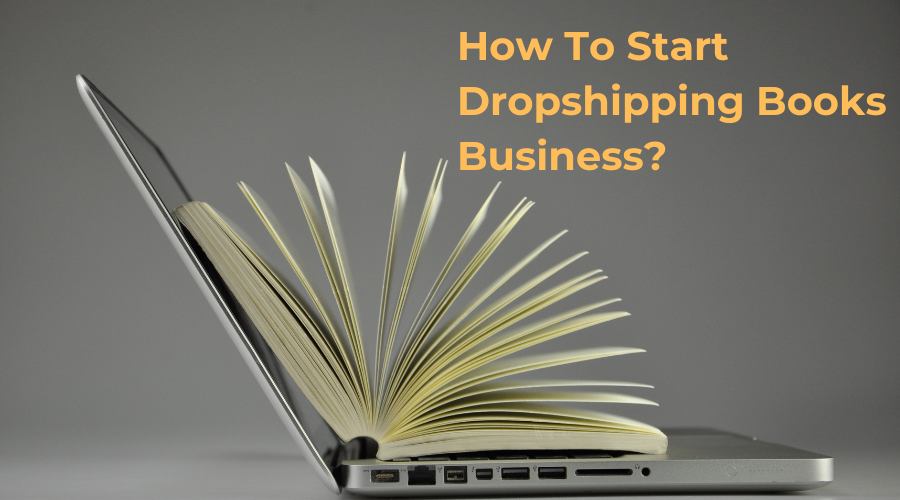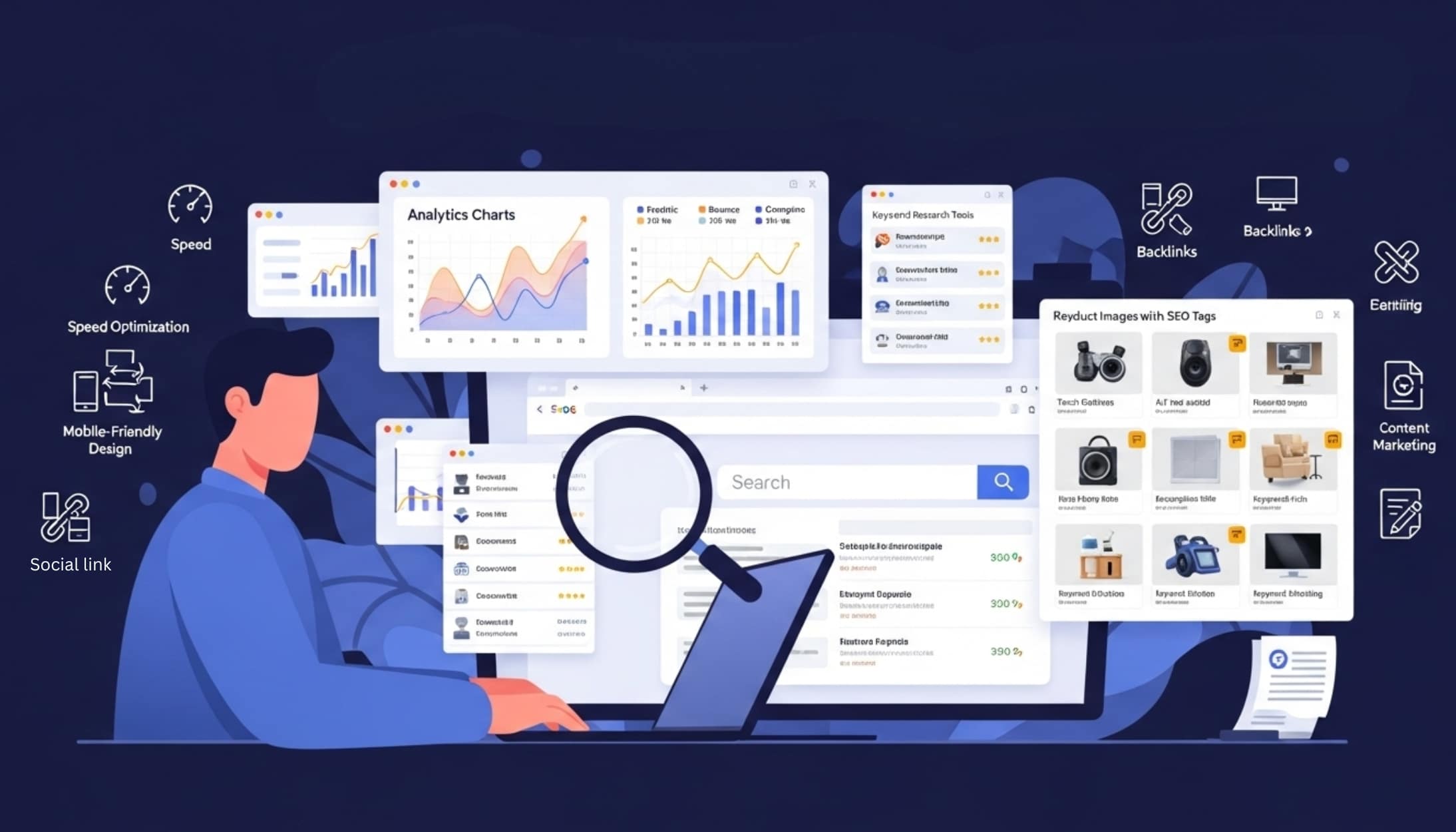Table of Contents
- Introduction
- Why Dropshipping Books is a Great Idea?
- Benefits of Dropshipping Books
- Choosing the Right Genres
- Dropshipping books suppliers
- Key Features to Look for in Dropshipping Suppliers
- Popular Platforms for Dropshipping Books
- Marketing Your Dropshipping Bookstore
- Tools and Resources
- Challenges and Solutions
- Conclusion
- FAQs
Introduction
Dropshipping has become an increasingly popular business model, offering numerous advantages for entrepreneurs looking to start an online bookstore. By leveraging the dropshipping model, you can sell books without the need to hold inventory or manage shipping logistics. This blog will guide you through the essentials of dropshipping books, including why it’s a great idea, how to choose the right genres, sourcing your books, key features to look for in suppliers, and tools that can help you succeed.Why Dropshipping Books is a Great Idea?

Benefits of Dropshipping Books
Dropshipping books offers numerous advantages, making it an appealing business model:-
No Inventory Hassles
One of the primary benefits is that you don’t have to store any products. This eliminates the costs and logistics associated with inventory and shipping, which can be particularly expensive for books due to their size, weight, and delicate nature. -
Passive Income Potential
Setting up a dropshipping store allows you to generate passive income. Once your online store is established and connected to a third-party book supplier, you can maintain a hands-off approach to operations. -
Growing Market
Despite the rise of digital formats like e-books and audiobooks, physical books remain popular. In the US, 65% of adults have read a print book in the past year, indicating a strong and stable market. -
Extensive Product Selection
With an estimated 160 million unique books available worldwide as of 2023, you have a vast selection to choose from. This variety allows you to cater to diverse customer interests and preferences. -
No Storage Costs
Storing books can quickly become expensive, but with dropshipping, you don’t need to worry about warehouse fees. Your suppliers handle the storage and shipping, reducing your overhead costs significantly. -
Multiple Niche Opportunities
The vast number of books available provides countless niche markets to explore. By focusing on specific genres or themes, you can carve out a profitable niche and attract a dedicated customer base.
Choosing the Right Genres
Choosing the right genres to dropship is crucial for your success. Here are some profitable genres to consider:- Fiction: Fiction remains a popular genre with a growing market. Bestselling fiction titles can attract a broad audience.
- Children’s Books: With a steady demand for educational and entertaining books for young readers, children’s books are a solid choice.
- Art & Entertainment: Books on art, design, and entertainment continue to be popular, offering diverse topics for customers interested in creative pursuits.
- History: History books appeal to a wide audience, from students to history enthusiasts.
- Cookbooks: Cookbooks are always in demand, catering to culinary enthusiasts and home cooks.
- Self-help and Educational Books: These genres provide valuable content, helping readers improve various aspects of their lives.
Dropshipping Books Suppliers
Finding reliable suppliers is essential for a successful dropshipping business. Here are some top suppliers to consider:- AliExpress: A popular platform offering a vast selection of books at competitive prices. AliExpress is known for its reliable shipping and extensive product range.
- Alibaba: Ideal for bulk purchases and finding suppliers who offer dropshipping services. Alibaba connects you directly with manufacturers.
- Book Depository: Known for its wide range of books and free shipping worldwide, Book Depository is a great option for sourcing books.
- IngramSpark: A reputable supplier offering a vast catalog of books, including print-on-demand services.
Key Features to Look for in Dropshipping Suppliers
When choosing dropshipping suppliers, consider the following key features:- Reliability and Quality: Ensure the supplier is reliable and provides high-quality books. This is crucial for maintaining customer satisfaction and minimizing returns.
- Inventory Management: Look for suppliers who offer real-time inventory updates and automation tools to streamline your operations.
- Shipping Efficiency: Fast and reliable shipping options are essential for customer satisfaction. Suppliers should offer various shipping methods to meet different customer needs.
Popular Platforms for Dropshipping Books
Integrating your dropshipping business with popular e-commerce platforms can enhance your operations. Here are some platforms to consider:- FatherShops: Seamlessly integrates with major e-commerce platforms, facilitating smooth operations and offering extensive resources for dropshipping books.
- Shopify: A leading e-commerce platform that offers numerous integrations and apps tailored for dropshipping.
- WooCommerce: A customizable, open-source e-commerce plugin for WordPress, ideal for dropshipping businesses.
- Amazon: A global marketplace with a vast customer base, offering excellent exposure for your dropshipping books.
- eBay: Another popular marketplace that allows you to reach a diverse audience.
Marketing Your Dropshipping Bookstore
Effective marketing is key to driving traffic and sales for your dropshipping bookstore. Here are some strategies:- Utilize Social Media: Use social media marketing and Engage with book communities on platforms like TikTok (BookTok), Instagram, and Facebook. Share book reviews, author interviews, and reading recommendations to attract followers.
- Leverage SEO Optimization: Optimize your store and listings for search engines. Use relevant keywords, high-quality content, and ensure mobile-friendliness to improve search rankings.
- Partner with Influencers: Collaborate with book influencers to promote your products and reach a larger audience.
- Email Marketing Campaigns: Build an email list and send newsletters with updates on new arrivals, promotions, and exclusive content. Use tools like Mailchimp or Klaviyo.Run Paid Advertising: Invest in Google Ads and Facebook Ads to target specific demographics and interests.
- Content Marketing: Create a blog with articles on books, reading tips, and author interviews to drive traffic and establish authority.
- Offer Promotions and Discounts: Attract new customers with limited-time offers, bundle deals, and seasonal sales.
- Utilize Customer Reviews: Encourage customers to leave reviews and display them prominently to build trust.
- Host Online Events: Organize virtual book clubs, author Q&A sessions, and reading challenges to engage your audience.
Tools and Resources
Using the right tools can streamline your dropshipping business and enhance efficiency. Here are some essential tools:- Automation Tools: AutoDS, Oberlo and Fathershops simplify product importing, inventory management, and order fulfillment, making the dropshipping process automated.
- Market Research Tools: Ahrefs and SEMrush help you find relevant keywords, track competitors, and optimize your content for search engines.
- Supplier Directories: Fathershops and Worldwide Brands provide access to verified suppliers, ensuring you work with reliable partners.
- Inventory Management Tools: Inventory Source and Ftahershops sync product data, inventory levels, and order fulfillment with your suppliers.
- Social Media and Influencer Tools: Hootsuite and BuzzSumo manage your social media marketing campaigns and help you find influencers in the book niche.
- Email Marketing Tools: Mailchimp and Klaviyo engage customers with personalized email campaigns.
- Analytics Tools: Google Analytics and Hotjar provide insights into website performance and user behavior.
- Payment Gateways: Fatherpay dropship and Stripe facilitate secure transactions for your customers.
- Customer Support Tools: Zendesk and LiveChat enhance customer engagement and satisfaction.
- Content Creation Tools: Canva and Adobe Spark help create engaging visuals for your website, social media, and marketing campaigns.
Challenges and Solutions
Running a dropshipping business comes with its challenges. Here are some common issues and solutions:- Competition: The dropshipping market is highly competitive. To stand out, focus on niche markets and offer unique titles or curated collections.
- Shipping Delays: Shipping delays can affect customer satisfaction. Work with reliable suppliers and offer various shipping options. Maintain transparent communication with customers regarding shipping times.
Read More
- What is Dropshipping Business Model & How to Start Dropshipping
- How To Find The Best Dropshipping Products To Sell in 2026
- How To Use Dropshipping Automation for Your Business
- Dropshipping vs. Wholesale: Key Differences and How to Choose
- Print On Demand Dropshipping: How To Start? Best Products & Suppliers
- Can Dropshipping Be a Career? Find Out Here
- 22 Ways To Learn How To Make Money From Home
- 20 Common Dropshipping Mistakes Every Beginner Should Avoid
- How to Create High-Converting Product Descriptions for Dropshipping
- 15 Most Profitable Dropshipping Niches in 2026



 Trusted Supplier Network
Trusted Supplier Network



